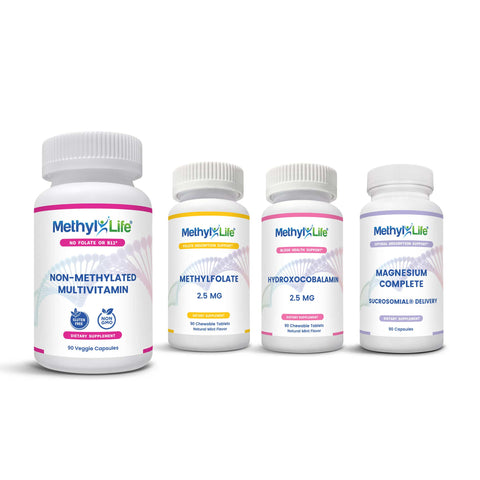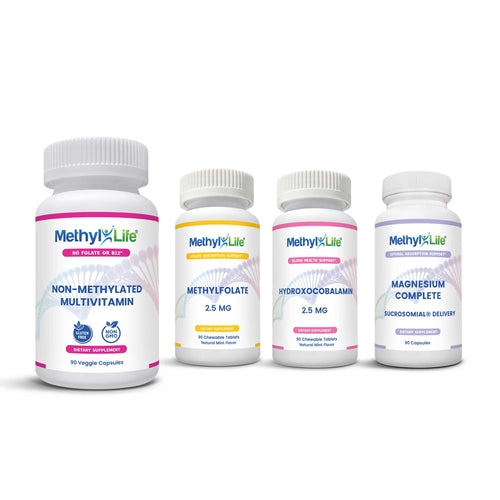Understanding MTHFR and Its Role in the Body
MTHFR stands for Methylenetetrahydrofolate Reductase, which refers both to an enzyme and the gene responsible for its production. The MTHFR enzyme plays a crucial role in the methylation process, where it converts folate (vitamin B9) from the foods we eat into its active form, methylfolate (L-5-MTHF).
Methylfolate is essential for several biological processes that influence mental, cardiovascular, and overall health.
The body relies on this enzyme to facilitate critical functions, including:
- DNA synthesis and repair: Ensuring cells grow and replicate correctly.
- Detoxification: Helping the body eliminate harmful substances.
- Homocysteine regulation: Keeping homocysteine levels balanced, which is crucial for heart health.
- Neurotransmitter production: Supporting the synthesis of mood-regulating chemicals like serotonin and dopamine.
- Producing SAMe from methionine: SAMe is required for the production of neurotransmitters.
- Supporting glutathione production: Glutathione is the body’s major detoxifier.
- Fertility health: Support for preconception and pregnancy
- Fetal development: Ensures the proper development of the baby’s brain and spinal cord
- Cognitive function: Supports the myelin sheath, blood-brain-barrier function and neurotransmitter production
The MTHFR gene, which instructs the body to produce the MTHFR enzyme, can sometimes undergo mutations. These mutations can alter the enzyme’s effectiveness, potentially leading to health issues, earlier for some and over time for others.









